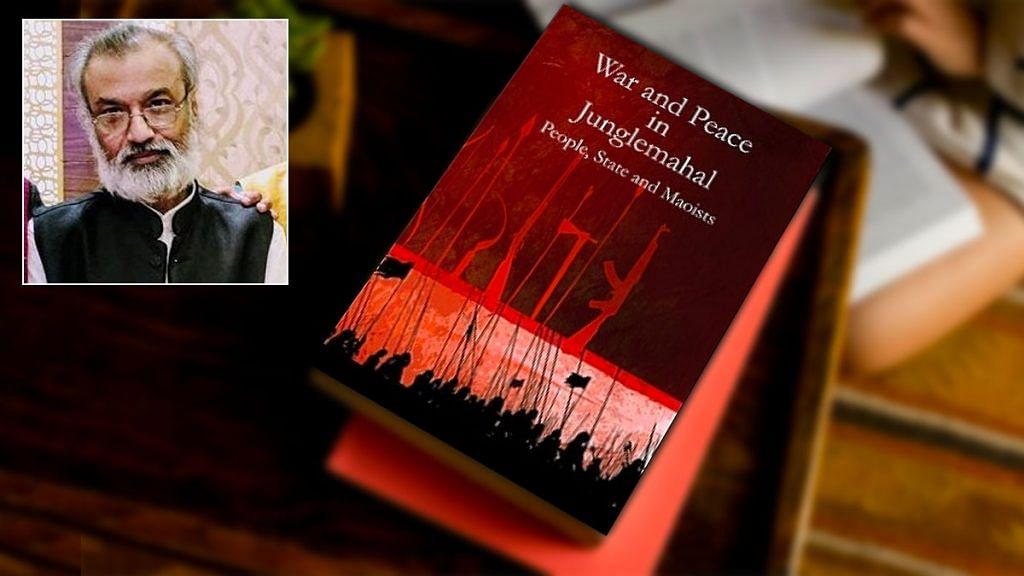Kolkata: The last 24 hours have been the “busiest” and “scariest” for journalist Biswajit Roy, ever since it emerged that the book he edited, ‘War and Peace in Junglemahal: People, State and Maoists’, was at the centre of a raging controversy.
On Wednesday, Justice Sarang V. Kotwal of the Bombay High Court had questioned activist Vernon Gonsalves, arrested in the Elgar Parishad-Bhima Koregaon case, for possessing “objectionable” books and CDs, apparently naming Leo Tolstoy’s classic War and Peace. After outrage, the judge clarified Thursday that he had been reading out the list of books and CDs seized by the Pune Police, and had asked the accused about Roy’s similarly-titled book.
Since then, Roy’s phone hasn’t stopped ringing, and he has barely been able to speak to all callers and respond to all texts.
“In these years, I lived as a cornered, failed and dejected journalist, as I always refused to take sides. In the last two years, since I lost my job, I hardly got a call or a text. But now, I am feeling like a hot cake,” Roy told ThePrint.
“I am flooded with calls and text messages from people congratulating me and also advising me what to do and what not to. But, this sudden frenzied reaction from friends and colleagues has also created a fear psychosis in me.”
Hard times
Roy spent 35 years working as a journalist for media houses like Anandabazar Patrika/The Telegraph, Times of India, The Statesman as well as the state-owned Doordarshan. But in February 2017, just a year before he was due for retirement, Roy fell victim to the retrenchment in media houses and lost his job. He lives in a small house in north Kolkata, and his wife works in a local cable channel.
Fondly called Madhu Da by friends and colleagues, Roy has written and edited five books, including War and Peace in Junglemahal. Another one, titled Anatomy of an Execution, deals with the story of Dhananjay Chatterjee, the man who was convicted for the rape of a minor girl and was executed. He has also written about the Singur and Nandigram movements.
But in the last eight months, Roy says, he has earned only Rs 4,000, and is not able to buy medicines for himself. He has written columns for many media houses as a freelancer, but says his dues haven’t yet been cleared.
“Many have advised me to join a media house as a columnist now. They think I have become a celebrity. But then comes a word of caution — ‘Madhu, you have to take a side, Modi or Didi?’ At this age, that is not possible,” he said.
Also read: Does War & Peace taunt show how poorly equipped Indian judges are to handle security cases?
‘I too can be termed an urban Naxal’
Roy explains his apprehensions by saying he fears action by the authorities. “Since last evening, every moment, I fear action by the police. I feel it is almost imminent. My books were never banned, but suddenly one of those is being seen as seditious and incriminating today,” he said.
“The book, which is a compilation of essays by many authors with diverse views on Naxalism, the peace process and the role of the state, suddenly featured on a seizure list. So, I can also be termed an ‘urban Naxal’, isn’t it?”
Describing what his now-famous book is about, Roy said: “It is about the failed peace process between the state and the Maoists in various states. There are some Naxal ideologues and staunch supporters or sympathisers of the movement who criticised the indiscriminate killing by the Maoists. I included their opinions and articles too.
“As a journalist, I spoke to Kishenji (militia chief of the CPI-Maoist, killed in Bengal in 2011) several times, and tried to convince him about the perils of the mindless killing of tribal people by terming them police informers. I tried to document everything that I saw and felt. I knew this Lalgarh movement would also fail like the Naxal movement of the 1960s and 70s did.”
The 550-page book, published in 2012 by Setu publishing house, almost went out of print. However, it is now being sold at Rs 2,500 on some e-commerce platforms, about four or five times its list price of Rs 500 for the paperback edition and Rs 700 for the hardcover.
The pricing was kept low because Roy wanted fellow journalists to read it, and knew they wouldn’t be able to afford a higher price. “I wanted them to read it. I do not know how many did,” he said.
‘How can books be incriminating?’
Speaking about his own collection of books, Roy says he has everything, from the Ramakrishna Kathamrita — the five-volume compilation of the life and conversations of the sage Ramakrishna Paramahansa — to pro-Naxal literature.
“I always failed to understand how books, I mean any book, can be termed incriminating. We have been hearing this for many years now that some professor or some social activist was arrested with ‘incriminating’ Maoist literature. What does this even mean? How can a book determine my belief and make me a nationalist or anti-national?” Roy wondered.
Also read: Junglemahal is a book on peace process with Maoists. But it frightens the Indian state
